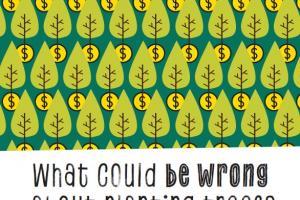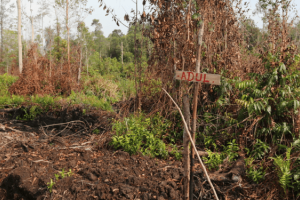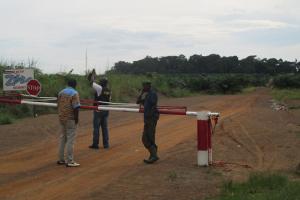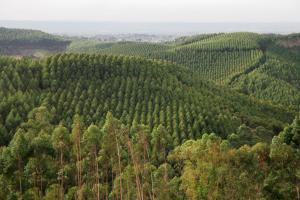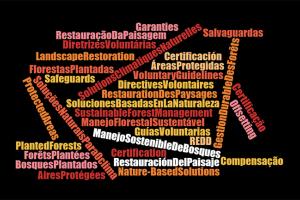This publication aims to alert community groups and activists about the corporate push for a new round of large-scale tree plantation expansion.
The Green Economy
The Green Economy is a tactic used to “clean up” the image of corporations rather than address corporate capture and capitalism as the true drivers of deforestation. False solutions promoted under the Green Economy include certification, sustainable forest management, ecosystem services, REDD+, the bioeconomy, nature-based climate solutions, and zero net deforestation. Rather than stopping it, these “solutions” support corporate-driven destruction that is causing a deep social and ecological crisis.
Publications
23 March 2020
Multimedia
23 March 2020
The community of Antsotso produced this video showing the impact of a biodiversity offset project of the mining corporation Rio Tinto /QMM on their livelihoods and their subsistence food production.
Bulletin articles
5 March 2020
This editorial aims to raise a high alert with regard to the corporate agendas that dominate international forest-related processes, which appear to be entering new phases. The decisions taken have very real impacts on forest communities.
Bulletin articles
5 March 2020
Oil multinational Shell claims that it is possible that consumers drive “carbon neutral”, simply by paying extra for offsetting their emissions - planting trees or investing in existing forest areas elsewhere. But what is happening in those areas elsewhere? (Available in Indonesian).
Bulletin articles
5 March 2020
What are the experiences of communities living inside or adjacent to the plantation areas of companies with “zero deforestation” pledges? How can these companies continue expanding without deforesting in densely forested countries?
Bulletin articles
5 March 2020
After more than 50 years of struggle by peasant communities who have faced all kinds of environmental and social destruction, the highest court of Cauca Valley has ruled against the industrial plantation company, Smurfit Kappa Cartón Colombia.
Bulletin articles
13 January 2020
Language is never neutral. Certain concepts have historically been used to dominate people and territories. This article highlights concepts that are usually presented in a positive light but that actually serve economic interests that harm forests and communities.
Bulletin articles
13 January 2020
The control of genetic resources (non-human living organisms that humans can make use of) through property rights has caused a massive theft of forest peoples’ knowledge. A project called the Earth Bank of Codes aims for a global seizure of life for capital accumulation.
Bulletin articles
13 January 2020
Climatology’s understanding of climate is extremely biased and exclusionary, and is only one particular view. Building better alliances around climate action means recognizing that there are ongoing conflicts and tensions among different conceptions of what climate is.
Bulletin articles
13 January 2020
The UN and conservation industry discourse and propaganda over REDD+ changed to a new forest conservation fad at the UN climate negotiations in December: Nature-Based-Solutions. Another false solution that distracts from the urgent task to keep fossil fuels in the ground.
Other information
13 January 2020
A post from the REDD-Monitor blog opens up the space for a needed debate about the politics surrounding so-called nature-based or natural climate “solutions”. Among others, it makes clear which actors are “loving” this initiative: oil and gas corporations in hand with their partners, the big international conservations NGOs who also support carbon offsets and REDD.
Other information
13 January 2020
ARTE, the European TV channel, broadcasted a documentary about FSC entitled: “The exploitation of primary forests: Can an ecolabel stop the forest industry?” Journalists traveled to several countries to investigate what FSC certification looks like on the ground, and whether it protects the forests and the rights of indigenous peoples and local communities that live in and near the forest. The almost one-hour documentary concludes that over the past 25 years of its existence, FSC has failed even to slow down the logging industry.
